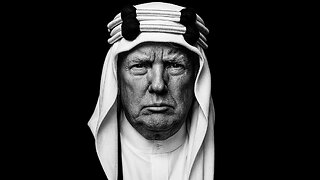Premium Only Content

BAD BUNNY SUCKS AND HE'S TAKING LATIN MUSIC DOWN WITH HIM
Key South American composers
A number of prolific South American composers absorbed the Spanish classical tradition and transformed it into a unique, regionally expressive art form.
Heitor Villa-Lobos (Brazil, 1887–1959): One of the most significant composers of the 20th century, Villa-Lobos fused Brazilian folk music with Western classical techniques. His famous 12 Études and Five Preludes for guitar are pillars of the instrument's modern repertoire.
Agustín Barrios Mangoré (Paraguay, 1885–1944): A prodigious guitarist and composer of Indigenous Guaraní descent, Barrios toured tirelessly throughout Latin America. He infused his virtuosic compositions with native folk themes and romanticism, becoming one of the most influential guitar composers of his time.
Manuel Ponce (Mexico, 1882–1948): Although a Mexican composer, Ponce's work was central to expanding the classical guitar's repertoire and was championed by the Spanish guitarist Andrés Segovia. Ponce integrated traditional Mexican melodies into his compositions.
Antonio Lauro (Venezuela, 1917–1986): A master of the Venezuelan waltz, Lauro wrote prolifically for the guitar, blending elegant classical forms with popular folk traditions.
Leo Brouwer (Cuba, b. 1939): This Cuban guitarist and composer has innovatively merged traditional Cuban folk rhythms and harmonies with avant-garde and contemporary classical techniques, creating well-regarded modern works.
Legacy and continued evolution
The creative exchange between Spain and South America cemented the guitar's status as a central instrument in Latin American music, both popular and classical. The resulting repertoire is a testament to the powerful synthesis of diverse musical traditions, proving the guitar to be a vehicle for new, distinctly Latin American expression. This evolution continues today, with modern composers building upon this rich, cross-cultural heritage.
-
 21:23
21:23
DYSTOPIA USA
3 days agoDONALD OF ARABIA. WITH THE "GAZA PEACE" WHAT IS NEXT FOR THE ARAB NATIONS?
20 -
 LIVE
LIVE
GritsGG
5 hours agoQuads Into Ranked Top 30! Most Wins in WORLD! 3734+!
106 watching -

GamerGril
3 hours agoI'm Up To My Neck In Zombie Blood 💞Dying Light The Beast💞
8.84K4 -
 53:29
53:29
Tactical Advisor
6 hours agoUnboxing New Guns | Vault Room Live Stream 042
105K9 -
 5:09:50
5:09:50
Ouhel
5 hours agoSUNDAY | BATTLEFIELD 6 | O'HELL LIVE | RUMBLE UPDATE
10.9K1 -
 56:20
56:20
Steven Crowder
1 day agoEXPLAINED: Is America Headed For a Market Crash?
152K108 -
 5:13:22
5:13:22
KammieKamz
5 hours agoThe Queen of COD 👑 - BF6 & COD Stream
11.3K -
 LIVE
LIVE
S0lidJ
2 hours ago🟢Live -S0lidJ - This Game Is A Blast
19 watching -
 21:38
21:38
Professor Nez
7 hours agoHE'S BACK! Elon Musk EVISCERATES Biden Judge Over Big Balls Verdict
28K54 -
 19:39
19:39
TimcastIRL
1 day agoTim Pool Wins $1 Million Bet During Debate Against Liquid Death CEO
245K112